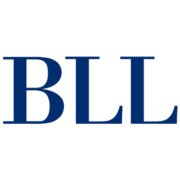Best Information Technology Lawyers in Dominican Republic
Share your needs with us, get contacted by law firms.
Free. Takes 2 min.
Or refine your search by selecting a city:
List of the best lawyers in Dominican Republic
About Information Technology Law in Dominican Republic
Information Technology Law in the Dominican Republic governs the use of technology, computers, and telecommunications in various aspects of society. This includes regulations related to data protection, electronic transactions, cybercrime, and intellectual property rights.
Why You May Need a Lawyer
There are several situations where you may require legal assistance in Information Technology in the Dominican Republic. Some common reasons include data breaches, intellectual property disputes, compliance with data protection laws, contract negotiations, and resolving cybercrime allegations.
Local Laws Overview
In the Dominican Republic, key laws that are particularly relevant to Information Technology include the Data Protection Law, Cybercrime Law, Electronic Transactions Law, Intellectual Property Law, and Telecommunications Law. These laws aim to protect individuals' data, prevent cybercrimes, regulate electronic transactions, safeguard intellectual property rights, and oversee telecommunications activities.
Frequently Asked Questions
1. What is data protection law in the Dominican Republic?
The Data Protection Law (Law 172-13) regulates the collection, processing, storage, and transfer of personal data in the Dominican Republic. It aims to protect individuals' privacy and ensure that their data is used appropriately.
2. What are the penalties for cybercrime in the Dominican Republic?
Penalties for cybercrime in the Dominican Republic can include fines, imprisonment, and other legal consequences. The Cybercrime Law (Law 53-07) specifies the offenses and penalties related to cybercrimes.
3. How can I protect my intellectual property rights in the Dominican Republic?
You can protect your intellectual property rights in the Dominican Republic by registering your creations, inventions, and trademarks with the appropriate authorities. The Intellectual Property Law (Law 65-00) provides the framework for intellectual property protection.
4. What regulations apply to electronic transactions in the Dominican Republic?
The Electronic Transactions Law (Law 126-02) governs electronic transactions in the Dominican Republic. It establishes the legal validity and enforceability of electronic contracts, signatures, and communications.
5. What are the requirements for telecommunications providers in the Dominican Republic?
Telecommunications providers in the Dominican Republic must comply with the regulations outlined in the Telecommunications Law (Law 153-98). This law sets forth the requirements for licensing, network infrastructure, consumer protection, and competition in the telecommunications sector.
6. How can I report a data breach in the Dominican Republic?
If you experience a data breach in the Dominican Republic, you should report it to the National Directorate of Data Protection. They will investigate the incident and take appropriate action to protect individuals' data.
7. Can I transfer personal data outside of the Dominican Republic?
Yes, you can transfer personal data outside of the Dominican Republic if you comply with the requirements of the Data Protection Law. Ensure that the data recipient offers an adequate level of protection for personal data.
8. How does the Dominican Republic regulate online content?
The Dominican Republic does not have specific regulations on online content, but the government can take action against websites that violate the law, such as those involved in defamation, hate speech, or the distribution of illegal content.
9. What are the legal considerations for cloud computing in the Dominican Republic?
When using cloud computing services in the Dominican Republic, consider data protection, privacy, security, and compliance with local laws. Ensure that your cloud service provider meets the necessary standards for data protection.
10. How can a lawyer help me with Information Technology legal issues in the Dominican Republic?
A lawyer can provide legal advice, representation, and assistance with various Information Technology legal issues in the Dominican Republic. They can help you understand your rights, navigate complex regulations, negotiate contracts, and defend your interests in court.
Additional Resources
For more information on Information Technology legal issues in the Dominican Republic, you can consult the National Directorate of Data Protection, the Dominican Telecommunications Institute (INDOTEL), the Dominican Intellectual Property Office (ONAPI), and legal professionals specializing in Information Technology Law.
Next Steps
If you need legal assistance with Information Technology in the Dominican Republic, consider contacting a reputable law firm with experience in this field. Schedule a consultation to discuss your specific situation, explore your options, and receive personalized legal advice tailored to your needs.
Lawzana helps you find the best lawyers and law firms in Dominican Republic through a curated and pre-screened list of qualified legal professionals. Our platform offers rankings and detailed profiles of attorneys and law firms, allowing you to compare based on practice areas, including Information Technology, experience, and client feedback.
Each profile includes a description of the firm's areas of practice, client reviews, team members and partners, year of establishment, spoken languages, office locations, contact information, social media presence, and any published articles or resources. Most firms on our platform speak English and are experienced in both local and international legal matters.
Get a quote from top-rated law firms in Dominican Republic — quickly, securely, and without unnecessary hassle.
Disclaimer:
The information provided on this page is for general informational purposes only and does not constitute legal advice. While we strive to ensure the accuracy and relevance of the content, legal information may change over time, and interpretations of the law can vary. You should always consult with a qualified legal professional for advice specific to your situation.
We disclaim all liability for actions taken or not taken based on the content of this page. If you believe any information is incorrect or outdated, please contact us, and we will review and update it where appropriate.
Browse information technology law firms by city in Dominican Republic
Refine your search by selecting a city.








